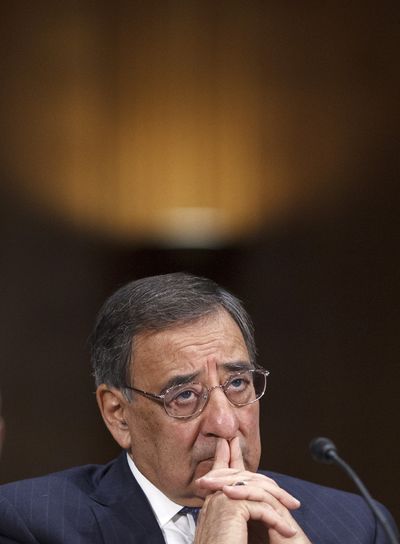Pentagon rejects intervention in Syria

WASHINGTON – Any U.S. military effort to protect civilians in Syria would take weeks to implement, the top Pentagon civilian and military officials said Wednesday, underscoring the limited U.S. options for ending President Bashar Assad’s violent campaign against Syrian rebels.
Another option – a full-fledged military campaign against Assad – would take even longer and would have to begin unilaterally as the United States is the only nation whose military could weaken Syria’s vast air defense systems, Army Gen. Martin Dempsey, the chairman of the Joint Chiefs of Staff, told the Senate Armed Services committee.
Defense Secretary Leon Panetta added that Assad’s air defense systems are located within population centers, which would likely lead to civilian casualties.
There would be “severe collateral damage,” Panetta said.
Panetta and Dempsey offered the first outlines of what a military campaign would look like even as they cautioned increasingly frustrated members of Congress against unilateral U.S. military action against the Assad regime. The Obama administration has called for Assad to step down but can do little on its own to make that happen – exposing its limited options for alleviating a crisis that President Barack Obama called “heartbreaking and outrageous” at a White House news conference on Tuesday.
At least 7,500 civilians have been killed as parts of Syria have endured weekslong barrages by Assad’s forces, according to the United Nations. The U.N. humanitarian chief, Valerie Amos, visited the besieged city of Homs on Wednesday and said that it was “completely devastated,” the BBC reported.
Panetta told the Senate panel that the Obama administration was trying to build an international consensus, adding that without international legal justification, intervening would be a mistake. However, Russia and China have blocked action by the U.N. Security Council, effectively killing chances for a multilateral military intervention like the one NATO mounted in Libya.
Meanwhile, the United States has allotted $10 million in humanitarian aid, which so far has reached 4,000 families in Homs, Panetta said.
“This terrible situation has no simple answers,” Panetta said.
Panetta also said the administration was seeking to deliver radios and other “nonlethal aid” to the rebels, but it was unclear what segments of the fragmented opposition – which includes Syrian exiles in Europe and the patchwork fighting force known as the Free Syrian Army – would receive that aid. Dempsey said the opposition was composed of as many as 100 different groups.